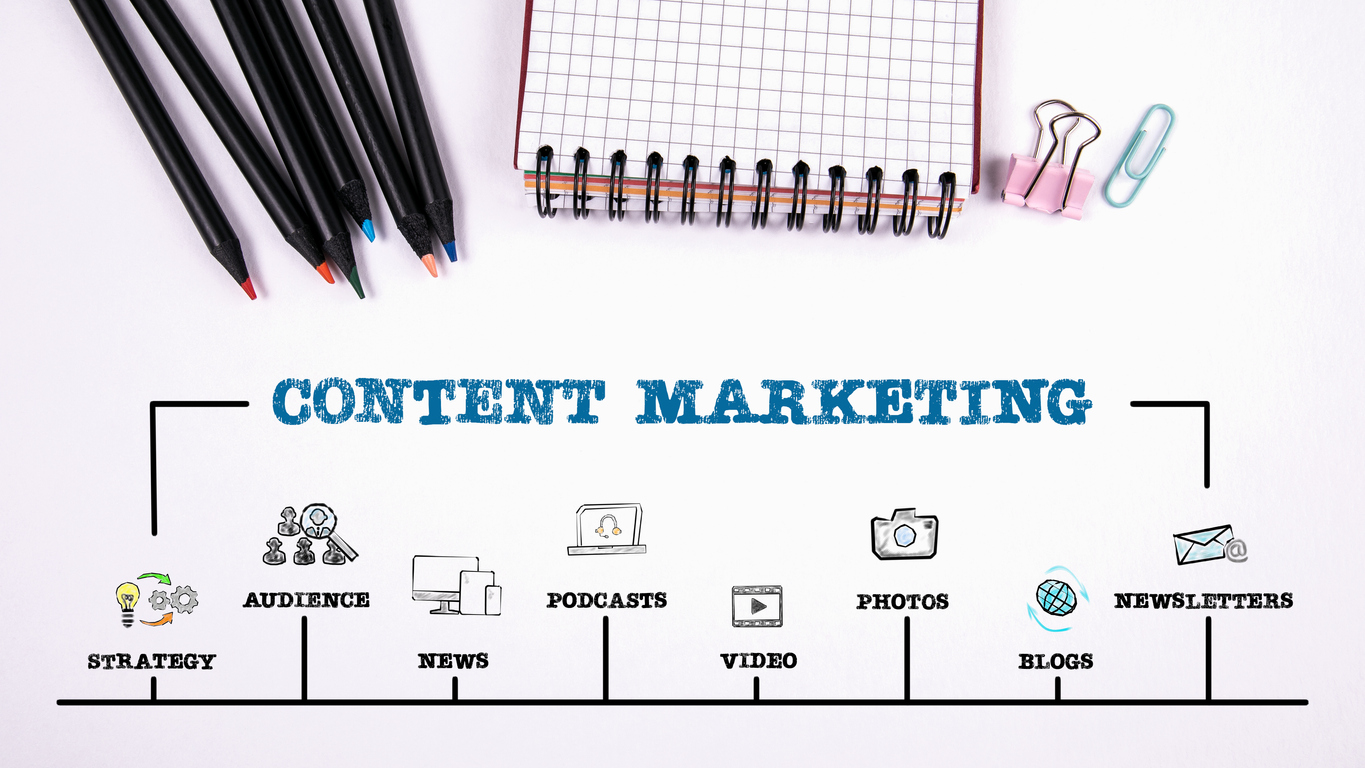“Content is King.” If you have been involved in digital or content marketing over the past decade, this timeworn phrase probably resonates with you. Content truly is king in modern digital marketing practices, but the story goes so much deeper. In simple terms, not all content is created equally, and certain content helps produce online visibility improvements and customer engagement far better than others. In this guide, we will explore the key elements of successful content. By gaining an understanding of what attributes make quality content, content marketing professionals have the potential to improve returns on investment (ROI) for their clients.
Content Marketing: An Overview
Before digging into the factors that help quality content stand out in a crowded marketplace, it can be valuable to understand the concept of content marketing. This innovative marketing strategy puts into practice the idea of creating and disseminating relevant, engaging, and informative content to a specific audience or set of audiences. Content marketing has two separate but related advantages; first, it helps to provide targeted audiences with the details they need to make informed purchasing decisions. Secondly, content marketing drives online visibility, including search results and social media engagement with followers.
Why is Content Marketing Important?
Content marketing has gained importance in recent years, supplanting traditional advertising and marketing strategies. It is especially important on the Web as more and more companies shift the bulk of their marketing efforts to online environments. In addition to the two advantages described previously, content marketing – and the content central to this marketing method — is important because:
- High-quality content influences consumer decision making more than any other advertising technique.
- Content marketing helps to build and maintain trust between companies and targeted audiences.
- This marketing strategy generates leads.
- Content that is well-written and informative builds authority (credibility) of a given brand or company among consumers.
Developing Content for Marketing: A Formula for Success
There are many aspects of quality content used in content marketing initiatives. Beyond the broad general aspects, such as correct spelling, punctuation, and grammar, there exist four specific elements that allow your content to have the desired effect of connecting with readers. These four elements are:
- Development of content that answers common consumer questions.
- Content that targets specific keywords and phrases.
- A clear and concise call to action (CTA).
- Messaging/content that can be shared across Web platforms.
When developing topics to be made into web content, there are key considerations in terms of providing the details and information consumers are seeking. Put yourselves in consumers’ shoes: what are they looking for? What is their intent? How do your company and its products or services provide solutions? What is your company’s goal in providing content to website or social media visitors? By addressing those questions during the development process, the resulting content has a much higher chance of connecting with readers. The goals for content can vary, and may include a desire to entertain or inform or to simply provide the details needed for consumers to commit to making a purchase.
Keywords are a fundamental part of digital marketing, which includes web content marketing. Search engines use the presence of keywords to index and rank webpages correctly in an effort to provide relevant results to search users. Identifying relevant keywords should be part of the content development process; there are numerous tools available for content marketing professionals to use in keyword research. Once those terms are identified, it is critical that these terms are added to content. Search engine optimization (SEO) has long been an essential component of online visibility in digital marketing; by adding targeted keywords, consumers have a much greater chance of discovering your content when conducting searches.
The call to action (CTA) can often confuse even the most seasoned marketing professional. To eliminate that confusion, it is vital that determining what you want readers to do with your content should be part of the content development process. Do you want customers to make a purchase, call for more details, or sign up for a newsletter or email campaign? To help drive conversion in your content marketing, best practices for CTAs include:
- Clear direction of the desired consumer action, such as a “click to subscribe” button, a bolded telephone number for more details, or graphic links to social media accounts, specific products, or websites.
- Keeping messaging consistent across platforms and in line with the company’s visual brand and mission.
- Focusing on the benefits from taking the action – this can sway reluctant consumers to take the next step.
- Adding features that help your message stand out from competitors. Consider adding strong graphical elements, a touch of humor, or anything that helps distinguish you from others.
- Continual testing and evaluation of CTA effectiveness. Content marketing professionals analyze user habits and data to gain an understanding into preferences. Without constant testing, you may never know how effective – or ineffective – your CTA really is.
Finally, when developing content for content marketing, adding versatility to the mix with varied content types is always a smart move. With versatile content, it is easier to share across platforms, including video-sharing sites like YouTube, social media platforms like Twitter and Facebook, and industry or company blogs. The more eyes your content reaches, the more chance that content has of driving customers to your business operation.
About Agency Tsunami
Agency Tsunami is the digital marketing division of Neilson Marketing Services, who has provided the insurance distribution sector with innovative marketing and communication solutions for over twenty-five years. With our Agency Tsunami program, we have implemented an integrated marketing strategy that includes optimized, professional websites supported by high-quality SEO and Social Media for hundreds of insurance retailers and wholesalers. Our goal is to help your insurance business perform and generate new opportunities. Give us a call at (800) 736-9741 to learn more about how we can do that for you.


 + 1 (800) 736-9741
+ 1 (800) 736-9741
